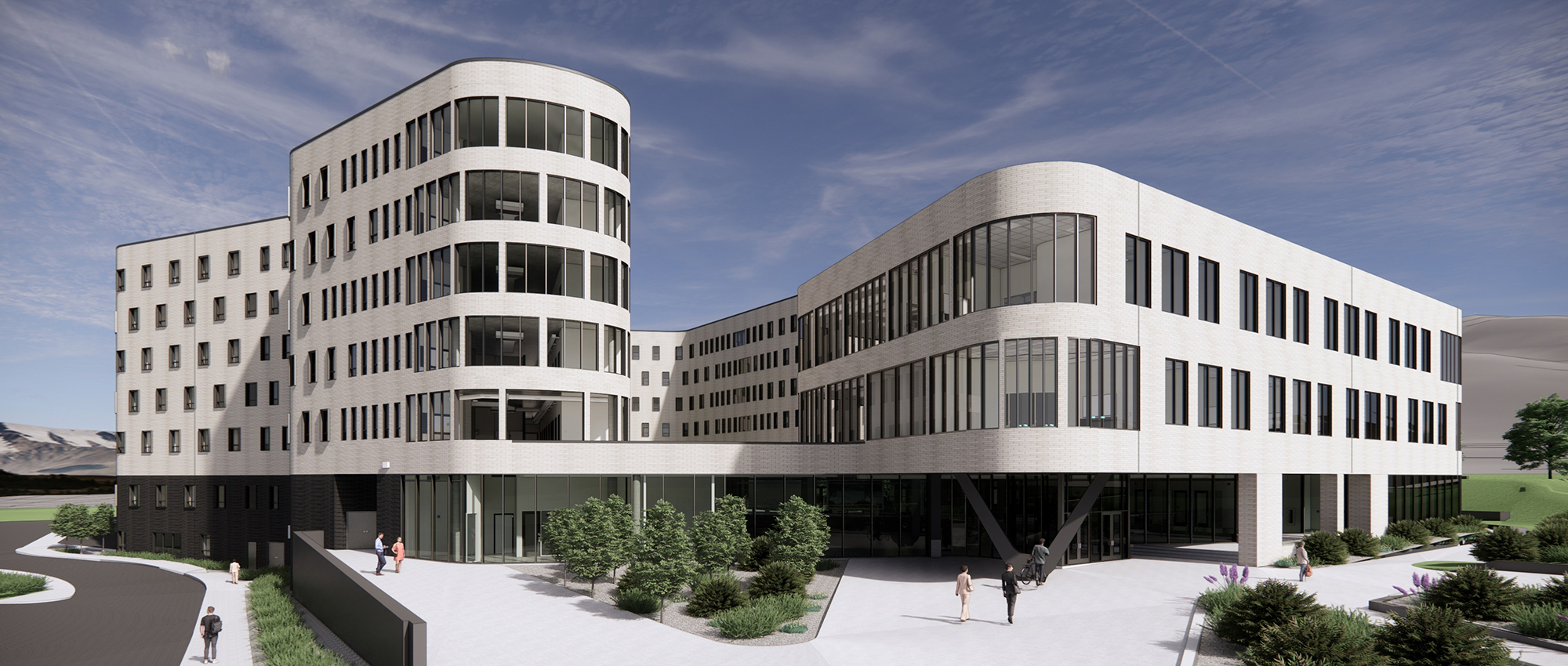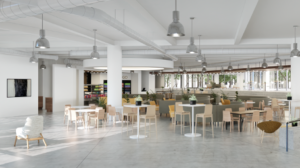
Nestled among panoramic views of Utah’s sprawling mountains at the heart of campus, the Impact & Prosperity Epicenter is the newest themed residential community offering a pathway to students for whom sustainable, purpose-driven, socially-minded learning is not just a goal, but a value at the heart of their education.
 “I am passionate about learning. There is an endless amount of skills to learn in this world, and I enjoy taking lessons from other people that are based on their own passions,” shares Emily Biagi, one of the first applicants to the Epicenter and aspiring Mechanical Engineer.
“I am passionate about learning. There is an endless amount of skills to learn in this world, and I enjoy taking lessons from other people that are based on their own passions,” shares Emily Biagi, one of the first applicants to the Epicenter and aspiring Mechanical Engineer.
“I believe living at the Epicenter would allow me to be introduced to people with a diverse range of passions and interests to explore,” continues Emily, “As for changing the world, I don’t believe that any singular person has the capacity to change the world, and I am no exception. It is only through the collaboration of ideas and efforts that any discernible difference can be made.”
Emily is among a growing number of Gen Z students who are coming to college committed to making a positive impact on the world and connecting with like-minded peers and professionals seeking to do the same.
“This generation of students isn’t interested in spending four years copying notes from a whiteboard. They’re looking for real-world, hands-on experiences and engaged learning,” said Geoff Davis, Co-Executive Director at the Epicenter and CEO of the Sorenson Impact Institute. “These students are interested in pursuing tangible change in business, in health, in the environment. We created a space to make that happen.”
Construction on the Epicenter building is rapidly progressing in preparation for the Fall 2024 opening. The building will feature six residential floors, a range of fully-furnished housing options, study and lounge spaces, and a full-service café. At its core lies ‘the Forum,’ a dynamic hub where scholars and changemakers from across campus converge, collaborate, and engage in events and workshops.
The Epicenter’s change-making ethos influenced the design of the building’s physical space. “This is a space for every student looking to create a difference in the world. It’s a place where students can work with world-class experts and scholars to leave the world better than they found it,” said Stephen Alder, Co-Executive Director at the Epicenter and Executive Director of the Center for Business, Health and Prosperity.
The Epicenter has three major components: the Residences at the Epicenter which will house 778 student residents; the Forum at the Epicenter which will be a place for students and other members of the University of Utah community to come together to work on change-making innovations; and the Changemaking Suites at the Epicenter which will serve as the central homes to the Sorenson Impact Institute and the Center for Business, Health, and Prosperity. Together, these components shape the student-led initiatives and drive close collaboration with experts, spanning a diverse array of fields and practices.
One example of these collaborations is the recent launch of the Student Advisory Council. This advisory group is composed of a select group of students who plan to reside in the Epicenter once it opens and who are charged with advising staff to ensure the Epicenter meets student needs. This advisory group represents students studying across a wide range of fields including Chemistry, Business, Political Science, Quantitative Analysis, and Biology – reflecting the diversity of the perspectives that will be key to the Epicenter community. “I applied to be a part of the Epicenter because I wanted to not only pioneer something for students who will come after me, but I wanted to be in a community that strives to do good things and create an environment that I can grow in,” said Rayshon Baker, a First-year student studying Political Science and Student Advisory Council member.
“The way I see it, many of the real-world, everyday problems that people have are not being addressed. While I’m not naive enough to believe that the solutions are the simplest to come by, I know that there are better ways to bring about change than sitting on my hands waiting for someone to come around and do it for me.” Continued Rayshon.
 Fortunately, the waiting is almost over. The residential component of the Epicenter will formally open in Fall 2024 but programming is already underway with a series of speakers, student socials, and workshops already available. Information on upcoming events and how to participate can be found here.
Fortunately, the waiting is almost over. The residential component of the Epicenter will formally open in Fall 2024 but programming is already underway with a series of speakers, student socials, and workshops already available. Information on upcoming events and how to participate can be found here.
Emily and Rayshon are just two of the many students on campus embracing University President Taylor Randall’s vision of a campus that thrives as a world-class destination for changemakers and have applied to live at the Epicenter.
Join them in applying to join the Epicenter community – Applications are now open at https://epicenter.utah.edu/
